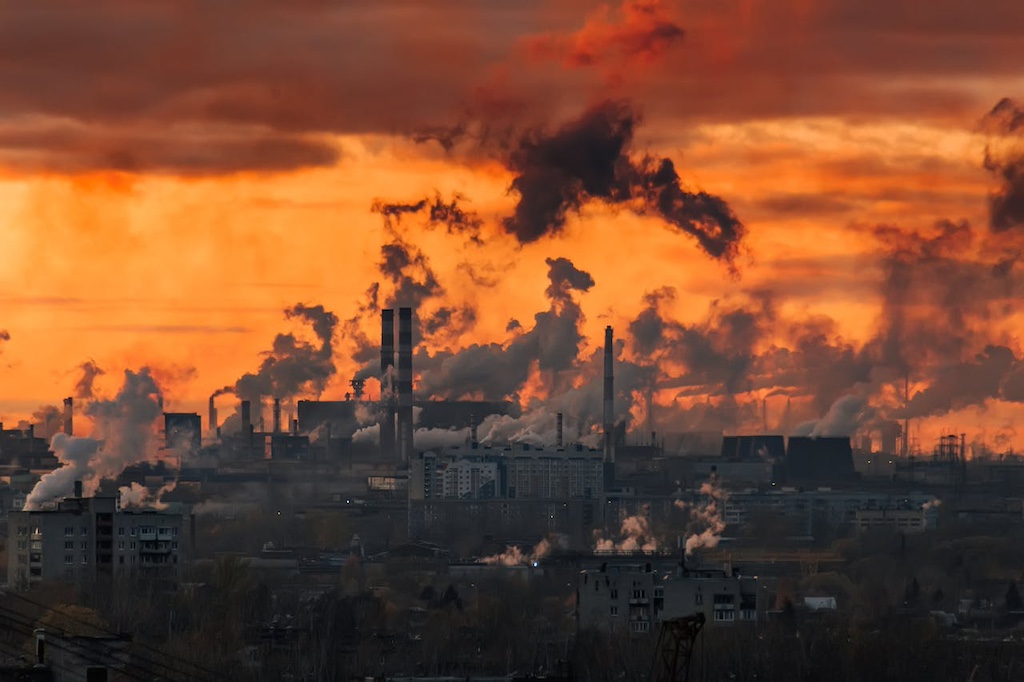Greenhouse gas concentrations in the atmosphere have reached unprecedented levels, raising serious alarm among global scientific communities. The World Meteorological Organization (WMO) warns of a sharp surge in carbon dioxide (CO₂) concentrations. This rise has pushed the planet toward faster long-term warming. The article presents new findings on record-high greenhouse gas levels. It also highlights the rise in methane and nitrous oxide emissions. Earth’s natural carbon absorption is weakening rapidly. WMO calls for immediate and drastic emission reductions worldwide.
Record-High Global CO₂ Concentration
Recent reports indicate that global CO₂ concentrations have climbed higher than ever before. The annual average CO₂ level recorded an unprecedented increase—rising by 3.5 ppm between 2023 and 2024—the largest annual surge since modern measurements began in 1957. This trend shows that human emissions and forest fires have pushed the atmosphere into a dangerous zone. The warming effect is expected to last for centuries. Data from hundreds of global stations confirm this alarming pattern. The current CO₂ growth rate is nearly three times faster than in the 1960s. This proves human activity continues to accelerate climate change.
Methane (CH₄) and Nitrous Oxide (N₂O) Also on the Rise
CO₂ is not the only concern. Two other long-lived greenhouse gases—methane (CH₄) and nitrous oxide (N₂O)—are also showing sharp increases. While their quantities are smaller, their heat-trapping potential is far greater, making them extremely potent contributors to global warming. The rise in CH₄ and N₂O levels is linked to human activities such as livestock farming, fertilizer use, fossil fuel extraction, and increasingly frequent forest and peatland fires. Together, these factors are driving the planet deeper into an uncontrollable cycle of warming that poses serious challenges for mitigation efforts.
The Earth Is Losing Its Natural Carbon Absorption Capacity
Perhaps the most concerning aspect of the report is the decline in the Earth’s natural ability—through forests and oceans—to absorb CO₂. Forests, wetlands, and oceans, which have long served as natural carbon sinks, are showing signs of exhaustion. Rising sea surface temperatures are reducing the ocean’s ability to dissolve CO₂, while extreme heat and drought conditions are weakening vegetation growth and limiting carbon uptake. If these natural systems keep degrading, large amounts of emissions will stay trapped in the atmosphere. This will accelerate global warming and raise the risk of crossing climate tipping points.

https://www.pexels.com/photo/cityscape-and-smog-at-sunset-9951823/
WMO Calls for Immediate and Drastic Emission Reductions
In response to these alarming findings, the WMO stresses that emission reductions can no longer be delayed. Incremental action is no longer enough—what is needed now is rapid, large-scale transformation across sectors, including energy, industry, transportation, and land use. The organization warns that without immediate, measurable action, the global temperature targets outlined in the Paris Agreement will be impossible to achieve. A trajectory toward a 3 °C or higher temperature rise is becoming increasingly likely. The WMO also urges countries to strengthen greenhouse gas monitoring to ensure transparency and accountability in their mitigation efforts.
Conclusion
The record-breaking CO₂ levels, along with the rising concentrations of methane and nitrous oxide, mark a critical turning point for our planet. As the Earth’s natural absorption capacity weakens and warming accelerates, WMO’s warning is not just a wake-up call—it is an urgent appeal for action. The time for hesitation is over. Drastic emission reductions must happen now, through bold policies and global collaboration.
If humanity fails to change course, future generations will face increasingly severe climate consequences. But by acting swiftly and decisively, we still have the chance to prevent the worst-case scenario and build a safer, more sustainable world for all.
Read other Articles: Minister of Energy and Mineral Resources: Greenhouse Gas Emissions Reduced by 147 Million Tons in 2024





